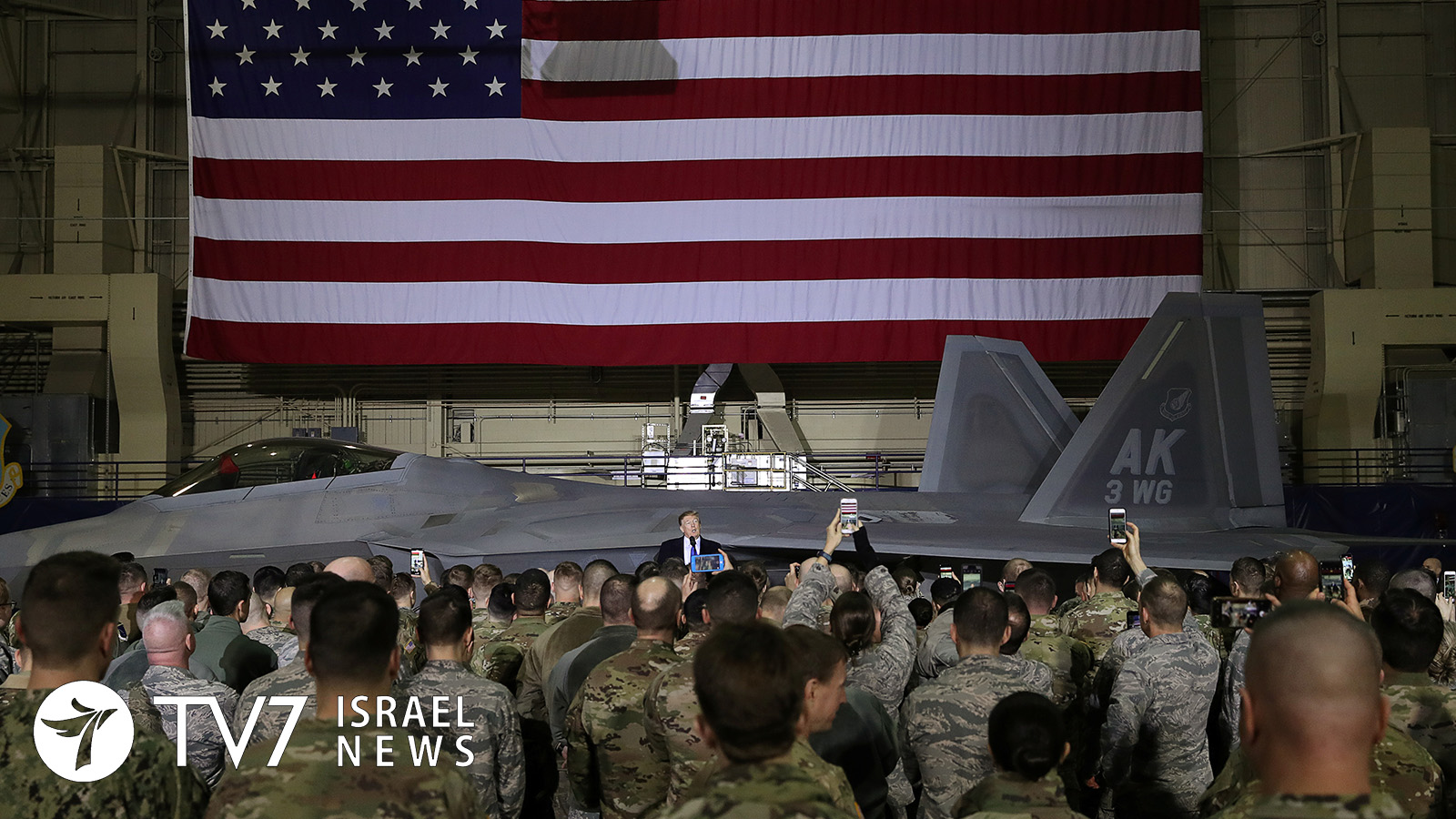Iranian President Hassan Rouhani declared that now is not the time for negotiations, but rather the time for “resistance and steadfastness.”
During a meeting with the Islamic Republic’s Council of Religious Clerics, the Iranian President urged the Shi’ite clergy to unite behind his government’s efforts “to deal with foreign sanctions and threats.”
Rouhani insisted that while he is a staunch supporter of “negotiations and diplomacy,” the time for words with the West has run its course. He stressed that the conditions on the ground demand the employment of “resistance,” a term frequently used in the region during times of war with the West in general, and Israel in particular.
the mounting rhetoric voiced in Tehran raises additional concerns among Western powers, who warn that a mere spark could quickly ignite the entire region. While urging restraint from all sides, the United Kingdom cautioned the Islamic Republic not to underestimate the resolve of the Trump administration – warning that if American interests were attack, the United States would retaliate with unimaginable force. According to the British Foreign Secretary Jeremy Hunt “I would say to the Iranians, do not underestimate the resolve of the U.S side in this situation. They are not seeking a conflict, they don’t want a war with Iran, but if American interests are attacked, they will retaliate and that is something that the Iranians need to think about very, very carefully.”
The British top diplomat further stressed that while London wants the situation to deescalate, the long-term solution to the problem with Iran is for the Ayatollah regime to alter its revolutionary foreign policy that causes considerable strife across the region. “Of course, we are very concerned. I think the U.S. is concerned as well and I have had a lot of discussions with Secretary (of State Mike) Pompeo about the situation in Iran, and we want the situation to deescalate, because this is a part of the world where things can get triggered accidentally. But the long-term solution to this problem is for Iran to pull back from the destabilizing activities it does throughout the region and which are causing everyone so much worry,” Hunt said.
Meanwhile in Washington, U.S. President Donald Trump stressed that the United States is ready to negotiate with Iran. That said, if the Islamic Republic is not ready to curb its malign activities, there is no room for negotiations. “If they call, we would certainly negotiate but that’s going to be up to them. I’d only want them to call if they’re ready. If they’re not ready, they don’t have to bother,” Trump said.
In response to the threats voiced by Iranian leaders, President Trump insisted that there is “no indication” of Iranian intentions to immediately escalate the volatile situation. Nevertheless, President Trump underscored that if Iran attacks U.S. interests “it will be met with great force.” In his words: “I think Iran would be making a very big mistake if they did anything. If they do something, it’ll be met with great force, but we have no indication that they will.”
Trump’s latest in a series of warnings to Iran came ahead of two closed-door sessions that were held separately today in the U.S. Congress and Senate. Top administration security officials, including acting Defense Secretary Patrick Shanahan, Secretary of State Mike Pompeo and Joint Chiefs of Staff Chairman General Joseph Dunford, presented a selected group of senior U.S. lawmakers with classified intelligence, that according to sources familiar with the material’s contents justify “the recent military measures undertaken in the wider Middle East.”
Prior to today’s extended security briefings, senior Republican Senator Lindsey Graham received a detailed overview of the escalating tensions with Iran from U.S. National Security Advisor John Bolton. Shortly thereafter the American lawmaker released a statement on his twitter account, which read: “The fault lies with the Iranians, not the United States or any other nation. If the Iranian threats against American personnel and interests are activated we must deliver an overwhelming military response.”
In contrast to the support Senator Graham voiced for President Trump’s Iran-policy, Speaker of the U.S. House of Representative Nancy Pelosi stressed that she is opposed to a military confrontation with Iran. That said, the top Democratic lawmaker pointed to her agreement with President Trump on opposition to the 2003 war in Iraq, and voiced hope that this same attitude will prevail with regard to an all-out-war with Iran. She said: “I like what I hear from the President that he has no appetite for this (war). One of the places that I agree with the President is in both of our opposition to the (2003) war in Iraq, and I hope that that same attitude will prevail (vis-à-vis Iran).”
Speaker Pelosi also took the opportunity to warn Trump’s security advisors of escalating the situation without the approval of Congress, which maintains the responsibility – per the U.S. constitution – to declare war. According to Pelosi, “Responsibility in the constitution is for Congress to declare war. So I hope that the President’s advisors recognize that they have no authorization to go forward in anyway. They cannot call the authorization AUMF – the authorization for the use of military force – that was passed in 2001 as any authorization to go forward in the Middle East now.”
